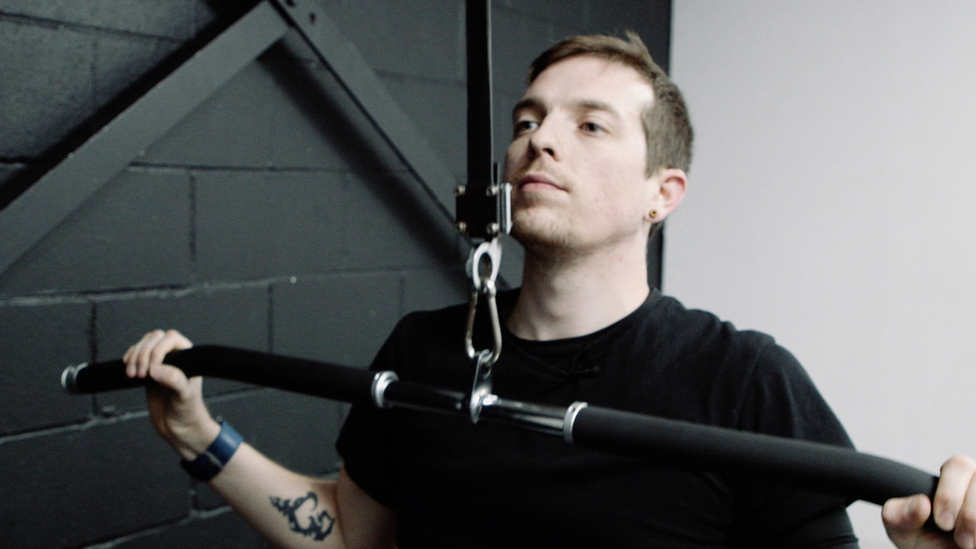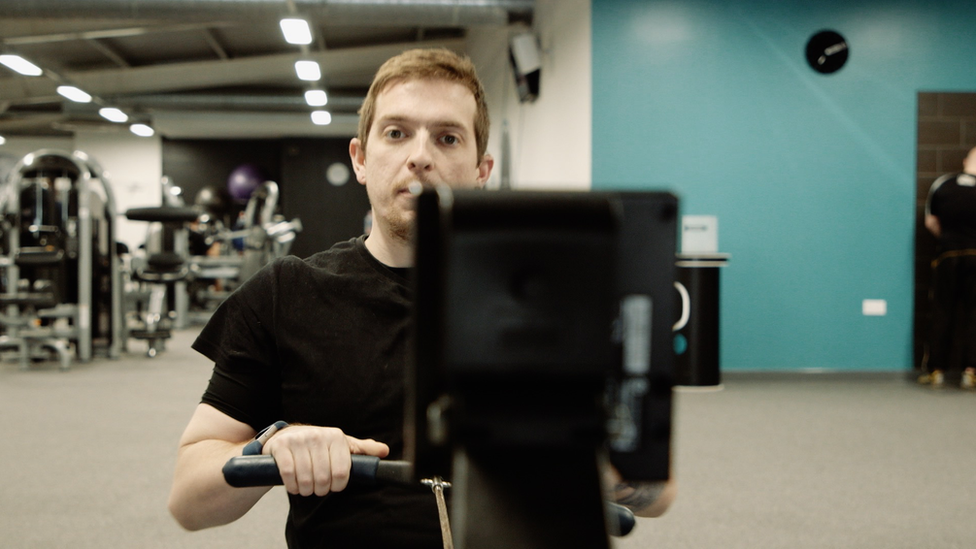'I was stopped from working because of my bipolar'
- Published

Ross is 26 and has had bipolar II with rapid cycling for his entire working life.
And his experience of the support he gets has differed significantly, depending on where he's worked.
"I have seen examples of really, really good practice and things that have really helped me.
"And I have also experienced things which have really affected my mental health in a negative way and therefore they've really impacted my work."
The rapid cycle element of his condition means his mood can fluctuate a lot from "kind of low" to "really low" and "a little bit high" to "hypo manic" in very quick succession.
Ross' lows leave him feeling apathetic, unable to feel happy and very anxious.

Ross goes to the gym to help his mood
His highs are the complete opposite - they "involve a lot of confidence, energy, impulsiveness and a want to go and do things and be around people".
But the lack of sleep and concentration that comes with the highs means he struggles to focus.
This creates a challenge for both him and his employer.
'I really enjoy working, it makes me feel valuable'
"I often feel really guilty when I have to take time off work, and there's a lot of anxiety around coming back to work as well."
Ross had a particularly hard time when signed off from one of his jobs.
"I was really low at that point, really, really low - suicidal in fact.
"And the first proper correspondence I got was a letter from HR to tell me that if I didn't get in contact then they might have to cut my pay.
"One of my big stresses at the time was finances and then this on top of it really hit me hard."
He says the letter came close to "pushing me over the edge."
'Another time they stopped me doing my job'
Ross says the worst experience came when the mental health charity he was working for offered him optional occupational health support.
"I did the assessment with a psychiatrist and I was essentially told I wouldn't be able to work with people with mental health conditions because of my bipolar.
"The exact reason given was because of 'the risk of me becoming uninhibited'.
"I've never been a risk to anyone."

Eventually the charity changed the company they used for occupational health and Ross was told he was no longer considered a risk.
'A supportive workplace makes all the difference'
Ross says he's also had great managers who understand when he's not feeling well.
"They've let me take on reduced responsibilities.
"So rather than me taking sickness, I can be effective and I can still do work - it just might not be all the work I would usually do.
"If they support me through those low times they get a really flexible, really dedicated worker the rest of the time."
Find us on Instagram at BBCNewsbeat, external and follow us on Snapchat, search for bbc_newsbeat, external